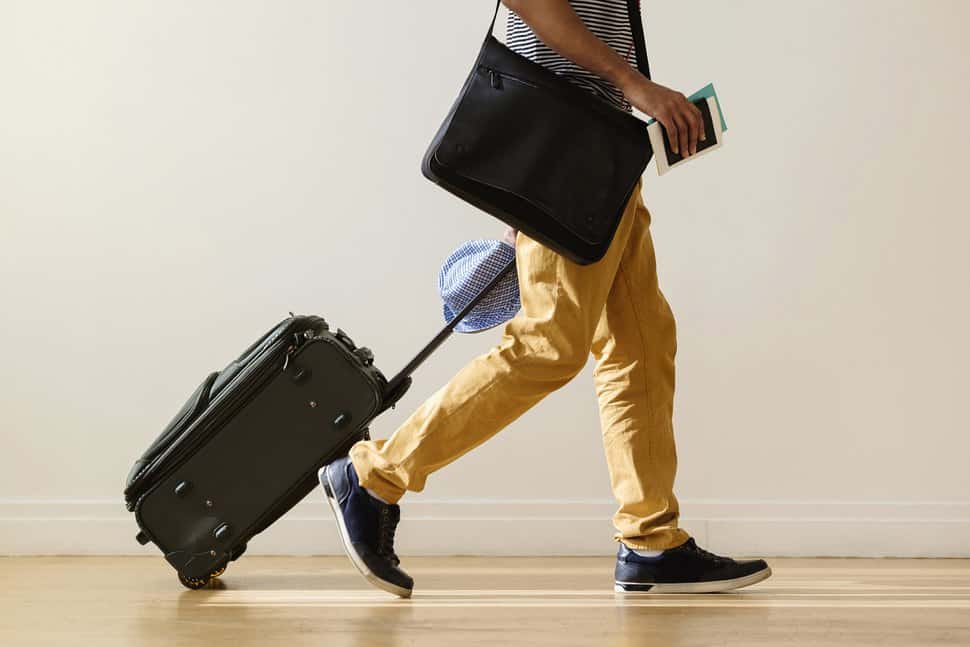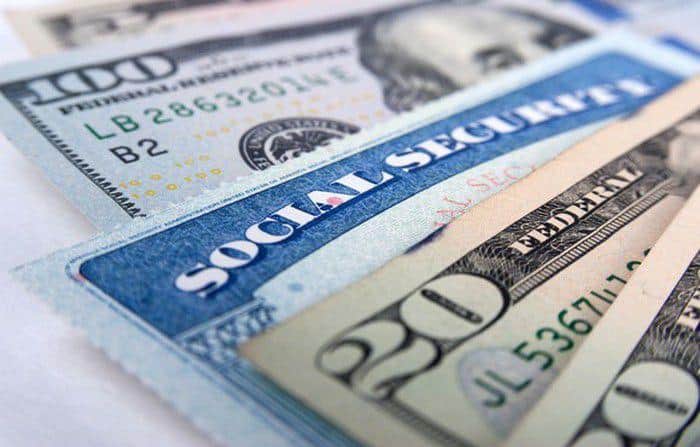
THE AMERICAN AIRLINE industry brought in $1.3 billion in baggage fee revenue during the first quarter of 2019, about $170 million more than the first quarter of 2018, according to a recent report from the U.S. Department of Transportation.
Unfortunately for travelers, the uptick in baggage fee costs and industry profits isn’t because more passengers are flying, but because airlines have been raising prices. JetBlue, American Airlines and United Airlines were among the airlines that increased baggage fees last year. Today, most major carriers charge $30 for the first checked piece of luggage and $40 for the second.
However, you can still dodge unnecessary extra baggage fees with a few key pointers. Here’s how to avoid baggage fees:
- Choose an airline that doesn’t charge a baggage fee.
- Use your credit card to your advantage.
- Join a frequent flyer program.
- Consider the cost of other add-on fees.
- Prepay baggage fees.
Choose an Airline That Doesn’t Charge a Baggage Fee
Before you book your flight, consider which domestic and international airlines impose baggage fees. For instance, the only domestic airline that does not charge a fee for checked luggage is Southwest Airlines. The carrier allows each passenger to check up to two bags for free (provided the piece of luggage is no heavier than 50 pounds and the maximum size isn’t over 62 inches; the oversized baggage fee is $75 per bag).
If you decide to fly with an airline that imposes a baggage fee, keep in mind, you’ll likely pay around $30 per bag or more. For example, United and Delta both charge $30 for the first checked bag, $40 for a second checked bag and $150 for additional pieces of luggage.
Use Your Credit Card to Your Advantage
“Credit cards are a huge help when it comes to managing baggage fees for every type of traveler,” says Brad Chase, owner of the Los Angeles-based travel consulting website, ChaseGlobalTravelGroup.com. Chase says that many airline branded credit cards will allow you to check in your luggage for free.
For instance, American Airlines has several credit cards that will waive your checked bag fees. The Barclays AAdvantage Aviator Red World Elite Mastercard, as an example, offers cardholders a free checked bag for domestic flights – and waived checked baggage fees for up to four traveling companions. So if that cardholder has a family of five, each of them could bring along a suitcase without getting hit with an extra add-on fee.
Chase adds that other universal travel credit cards that aren’t necessarily partnering with an airline, such as some American Express and U.S. Bank cards, offer credits that go toward baggage fees. For instance, the U.S. Bank Altitude Reserve Visa Infinite Card offers a $325 annual statement credit that can go toward baggage fees.
“You may have to pay an annual fee for the credit card, but you get many other perks and points. Even the most credit-averse person can wisely and easily get a ton of free bags and much more in terms of perks by going this way,” Chase says.
Join a Frequent Flyer Program
Belonging to a major airline rewards program comes with a variety of perks. For instance, if you achieve Medallion status with the Delta SkyMiles program, you can take advantage of free checked bags. And with the American Airlines AAdvantage rewards program, once you reach a higher elite status, you can have up to three complimentary checked bags, depending on your status level.
While joining a frequent flyer program isn’t as beneficial if you fly infrequently, if you travel often, you should consider joining for generous membership perks.
Consider the Cost of Other Add-On Fees
“I think sometimes people confuse avoiding baggage fees with what they really want, which is to pay the least amount of money overall. If someone focuses too much on bag fees, they can end up spending more,” says Seth Kaplan, an airline analyst and aviation journalist based out of the District of Columbia.
Kaplan says the most important thing is to do the math. “For example, almost everyone knows bags fly free on Southwest, but of course, they’re not really free. They’re included in what can sometimes be a significantly higher fare. If you’re going to check two bags, then yes, Southwest will likely save you money. Otherwise, it depends,” Kaplan says.
He also points out that some airlines will charge you if you bring a large carry-on bag that requires overhead bin space. “United, Spirit, Allegiant and Frontier don’t allow free large carry-ons – those requiring bin space – with most of their lowest fares,” Kaplan says. “On these airlines, think first about how much you can pack into small carry-ons that fit under the seat, which are still allowed for free. Beyond that, attempt to put everything else into just one checked bag, because it’s far cheaper for, say, two people traveling together to have one checked bag than two large carry-ons.”
“Believe it or not, Spirit actually charges more for a large carry-on then for a checked bag, even though the checked bag can be much bigger and heavier,” he adds. Spirit’s carry-on fees range from $35 to $65, and checked-in luggage is $30 to $65, depending on factors such as the weight of the bag and whether you’re paying for the bag on the website or checking it at the gate.
Prepay Baggage Fees
Chase recommends that you pay the baggage fee online when you’re booking your ticket online, rather than waiting until you get to the airport. “When you get to a counter, the agents are far more willing to give you a pound or two or a few, if you’ve been smart enough to pay in advance,” he says. “Sometimes they’ll be standoffish and make you pay more. But usually, if you quickly move a couple of items to your carry-on, they’ll let you slide on paying the lower fee.”
























